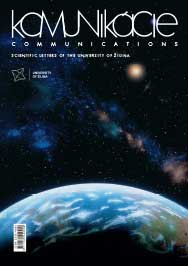Determinants of Labor Market in Jakarta Metropolitan Area: A Survival Analysis of Commuters
Determinants of Labor Market in Jakarta Metropolitan Area: A Survival Analysis of Commuters
Author(s): Irwanda Wisnu Wardhana, Dhani Setyawan, Khairunnisah KhairunnisahSubject(s): Labor relations, Socio-Economic Research, Transport / Logistics
Published by: Žilinská univerzita v Žilině
Keywords: commuter; labor supply; survival analysis; transportation;
Summary/Abstract: This study aims to assess the determinants of the labor market in the Greater Jakarta Area (Jabodetabek) with a population of 27.9 million (2010 census) and growth rate of 3.6 percent per annum over the period 2000-2010. With a total area of 4,384 square kilometers (1,693 sq mi), the city has a very high population density of 14,464 people per square kilometer (37,460/ sq mi), while the metro area has a density of 4,383 people/sq km (11,353/sq mi). The paper employs the survival regression analysis by incorporating attributes of commuter, namely gender, age, distance, travel time, wages, stress, education level, double income households and home ownership. The area consists of Jakarta as the receiving labor market and eight municipalities and regencies as labor suppliers. The study utilizes a cross-section data from a commuter survey with more than 4,000 respondents participated using different modes of land transport. The results reveal that some determinants have influenced commuters' resiliency and their willingness to participate in the receiving labor market. This study found that gender, distance, wages and home ownership do not affect the respondent's decision whether to stay or quit as commuters. On the other hand, the fittest model exhibits that age, education level, stress, travel time and double income households have significant effects on individual's decision to stay or quit as a commuter. It is found that gender, distance, wages and home ownership do not matter for respondent's decision on whether to stay or to quit as commuters. The model exhibits that age, education level, stress, travel time and double-income household have significant effects on an individual's decision to stay or quit as a commuter. Education level has a positive effect; on the other hand, age, stress, double-income household and travel time have a negative effect. The policy implications for improving the labor supply provision and some contested policy options are suggested, such as the provision of affordable housing in Jakarta, the improvement of commuting enjoyment, the establishment of child care facilities in the office buildings and the creation of more sophisticated jobs within the Jakarta's surrounding municipalities and regencies.
Journal: Komunikácie - vedecké listy Žilinskej univerzity v Žiline
- Issue Year: 22/2020
- Issue No: 2
- Page Range: 42-51
- Page Count: 10
- Language: English

